8 things to know about the Philippine-Netherlands relations
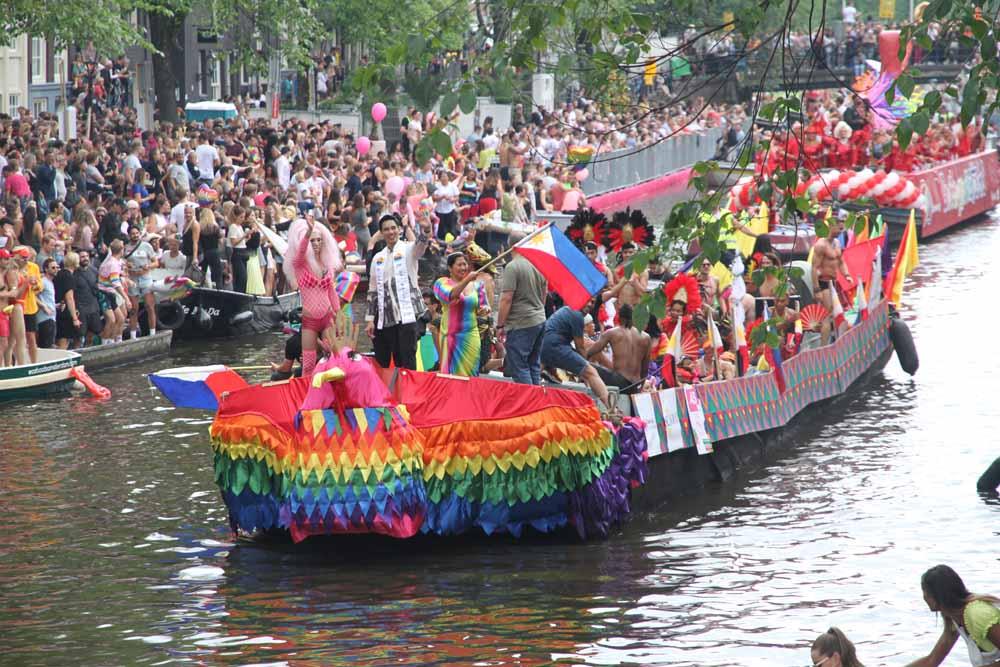
The Philippines and the Kingdom of the Netherlands may be 10,600 kilometers apart but the two nations have been enjoying close connections for 70 years.
On our Independence Day month, the two nations are also celebrating its 70th year of diplomatic relations.
To celebrate both occasions, allow us to write 8 interesting things about their close contact.
1. The Netherlands is historically one of the top 5 investors in the Philippines
The economic relations between the Netherlands and the Philippines could be traced back to the late 19th century when “undercover trade” was tolerated between Dutch East Indies and the Philippines.
In 1866, the Kingdom of the Netherlands appointed G. van Polanen Petel as its first honorary consul in Manila. At the same time, Spain was also authorized to appoint an honorary consul in Batavia, the capital of Dutch East Indies.
During the American colonial period, Dutch business presence in the Philippines gradually grew through the trade via the Netherlands East Indies. Tobacco products, copra and Manila hemp were the main traded items. During this period, the Royal Dutch/Shell, Unilever and Philips were established in the Philippines.
After the second world war, KLM, the Royal Dutch Airlines, began flying to the Pacific, with stop-overs in Manila.
Currently, some of the largest investors in the Philippines are Shell, Philips, Unilever, ABN-AMRO and ING Banks, Makro and Liquigaz.
On the other hand, Philippine National Bank, Rizal Commercial Banking Corporation, and Equitable-PCI Bank have remittance offices in the Netherlands.
The total trade in between the two nations amounted to $2.42 billion in 2020, with $1.9 billion worth of total exports to the Netherlands.
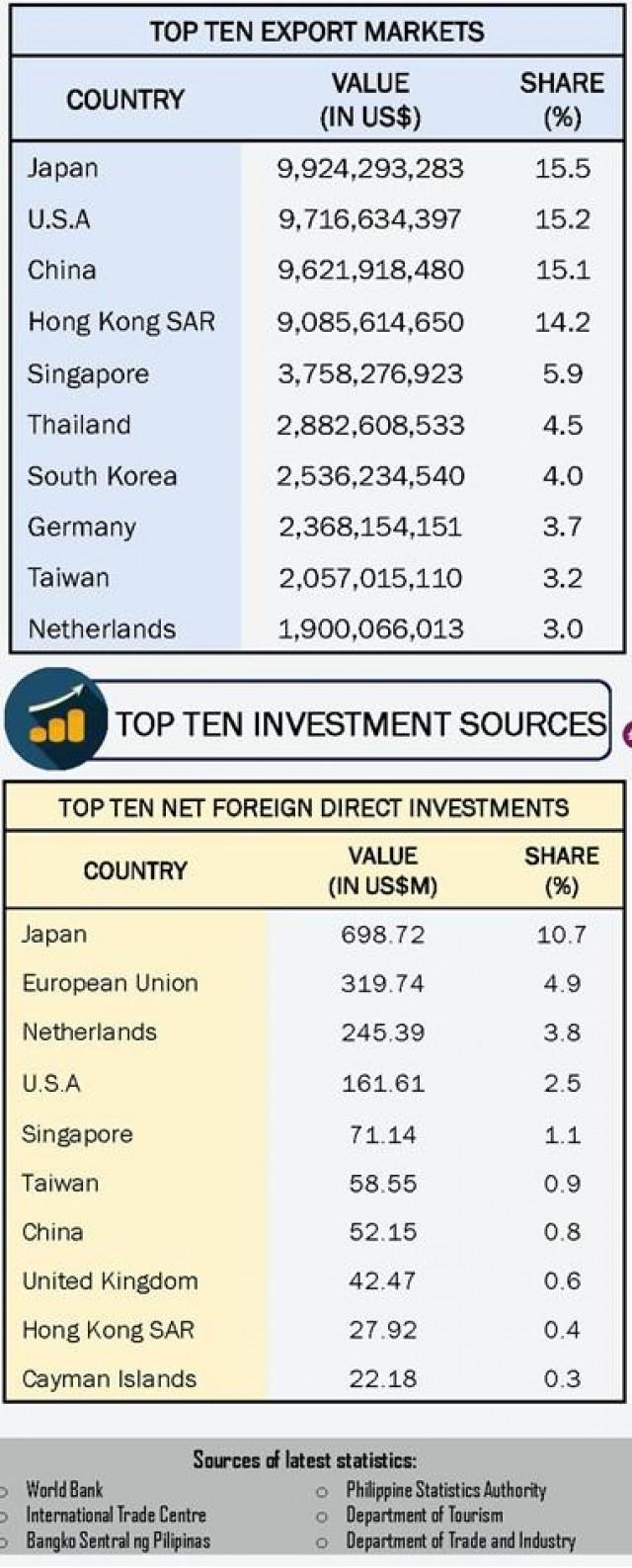
2. Dutch government lends expertise in water management to the Philippines
The Netherlands and the Philippines have one thing in common: their need for effective water security and management. Around 70% of the Dutch population lives below sea level, and due to the country’s unique landscape, the Dutch have become experts on the flood management system.
As such, the Philippine government has requested for assistance on water-related issues such as flood management and control.
The Dutch water sector has been involved in the Philippines for many years now. In 2013, several Dutch Risk Reduction Team (DRR-Team) missions have been excited at the request of the Philippine Government.
The Dutch water sector focuses on sustainable coastal management, safe urban deltas and improving water quality. Currently, the Dutch government is currently supporting several projects involving Dutch organisations: the Manila Bay Sustainable Development Master Plan, coastal management and safe drinking water.
“One of my priorities is to further grow the economic and trade relations of the Netherlands and the Philippines especially on the cutting edge technology on water management,” newly-appointed Philippine ambassador in the Netherlands J. Eduardo Malaya said.
3. The first Filipino boat in the history of the Amsterdam Pride Parade sailed in 2019
The Netherlands is known across the world for promotion of LGBT rights. As early as 2001, the Netherlands legalized same-sex marriage — the first country in the world to do so.
In 2019, LGBT Filipinos were officially represented in a Pride event in Europe for the first time. Showcasing the rich culture of the Philippines, the costumes were inspired by various Filipino tribes and communities.
But that's not all: Of the 80 boasts that joined the parade, the Filipino vessel won third place in Overall Execution and Boat Design.
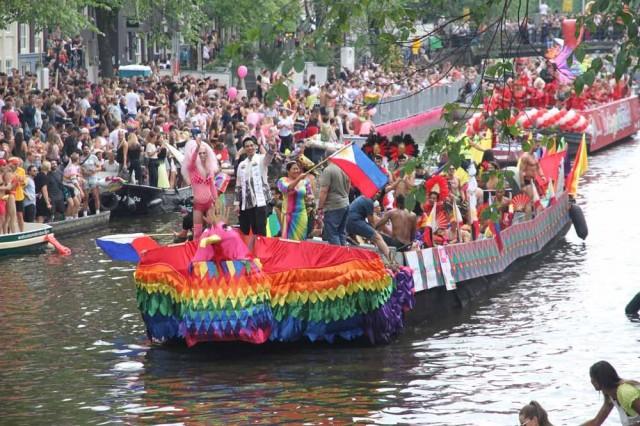
The Balangay, represented by the Filipino LGBT Europe, symbolizes the historic roots of the many Filipinos living in Europe. It also represents the unity and solidarity of Filipino LGBTs in Europe as they push for equality and acceptance in the society.
4. Dutch cycling culture is being adapted in the Philippines
The Netherlands has a strong cycling culture with Amsterdam is considered the cycling capital of the world.
In 2019, the Dutch Cycling Embassy (DCE) held a workshop in Iloilo city as a model to build a progressive urban planning for cycling, making the Philippines the first Southeast Asian country to hold the workshop.
"Residents of the Philippines spend as much as eight hours per day on the road in motorized vehicles. Our embassy received increasing signals that there is significant demand for alternate means of transport. We see the bike as one of those means. You see them more and more here in daily life, but we can do more to make the bike a safe, sustainable means of transportation," said Kevin Punzalan, Senior Policy Officer at the Embassy of the Netherlands in the Philippines in an interview for the DCE.
5. A Filipina scientist was knighted by the Netherlands in 2021
A Filipina scientist was knighted by the Netherlands in recognition of her work in agriculture and dedication to promoting Dutch-Filipino relations.
Dr. Mary Ann Pelagio Sayoc received knighthood in the Order of Orange-Nassau and was awarded by Ambassador Saskia de Lang for her efforts in transforming Philippine agriculture and boosting farmers' productivity.
With her help, the Philippines and the Netherlands have "developed strong ties in the agri-food sector in the areas of trade, investments, agricultural technology, and knowledge transfer."
6. Bayanihan spirit very much alive through efforts of various Filipino organisations in the Netherlands
The spirit of Filipino unity is actively present in the Netherlands, and during the time of pandemic, the “bayanihan” spirit has become even more alive. Many Filipino organizations have come to the aid of fellow Filipinos who have been left vulnerable due to loss of their job and income, as well as the daily psychological and emotional challenges of COVID-19 related restrictions in the Netherlands.
Filipino organizations in Amsterdam and The Hague continue to distribute aid to displaced Filipinos.
“We do not have a grand celebration for the Independence Day this year due to the restrictions still in place in the Netherlands, but through community relief efforts, we hope to give hope and happiness to Filipinos who were affected by the crisis,” Chris Sta. Brigida, chairman of Filipino LGBT Europe said.
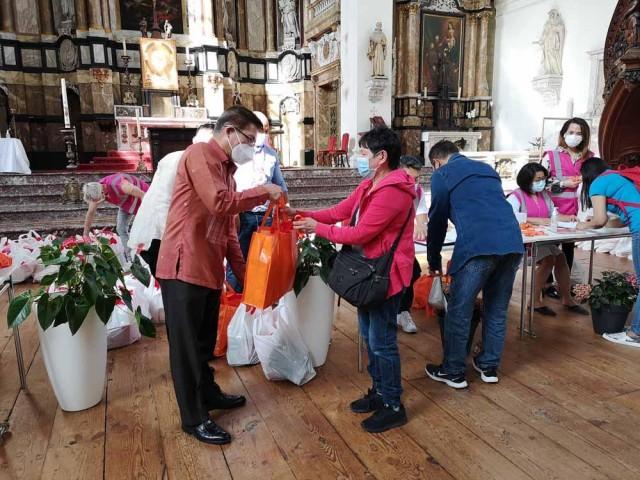
“There’s no better way to commemorate the Independence Day but to witness the Filipino unity amidst the crisis. I am deeply impressed by the work of Filipino community. It’s very fulfilling to see the members of the community help each other,” Malaya said.
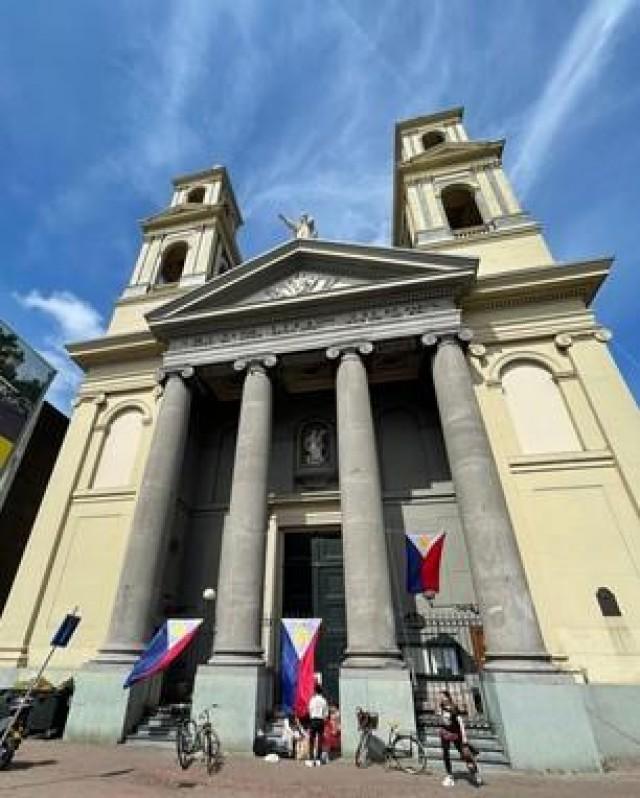
7. More than 14,000 Filipinos live in the Netherlands and Dutch Caribbean islands
As the economic relations grew between the Netherlands and the Philippines, so did the number of Filipinos present in the Netherlands. According to the Department of Foreign Affairs, the first recorded migration of a Filipino to the Netherlands was that of a nurse who arrived in 1947 to work in a hospital in Amsterdam. More nurses arrived during the 1970s and began living and working in Dutch health care.
Additionally, as Rotterdam developed into the largest trading ports in the world, more Filipino seafarers have visited the Netherlands. It has been reported that at any given day, there are about 500 Filipino seamen docking in Dutch ports.
Currently, there is an approximated 14,000 Filipinos living in the Netherlands and Dutch Caribbean islands.
7. Filipino food presence is growing in the Netherlands
As more Filipino migrants come to the Netherlands, more and more Filipino business owners invest in promotion and sales of Filipino food in the Netherlands.
In the Hague, Baryo Pilipinas serves traditional Filipino food like the typical “kamayan boodle fight” and other ethnic dishes. A Filipino bakery also opened in The Hague in 2019 to serve warm pandesal, ensaymada and other Filipino pastries and bread.
During the lockdown period, many restaurants are closed or are only operating on limited capacity. Thus, home-based catering businesses and open food stalls have also become a hit. Catering businesses such as the House of Pinoy Amsterdam have also sprouted in the city serving on-demand Filipino food and other products to Filipinos via pick-up or delivery. Newly-opened Kusinang Pinoy serves ready-to-eat Filipino food in a street market in Amsterdam.
“We cater to a lot of Filipinos but a lot of foreigners and tourists are also interested in trying out our cuisine. Our menu includes adobong manok, afritada, vegetarian pancit and suman,” Gheline Polinar of Kusinang Pinoy said.
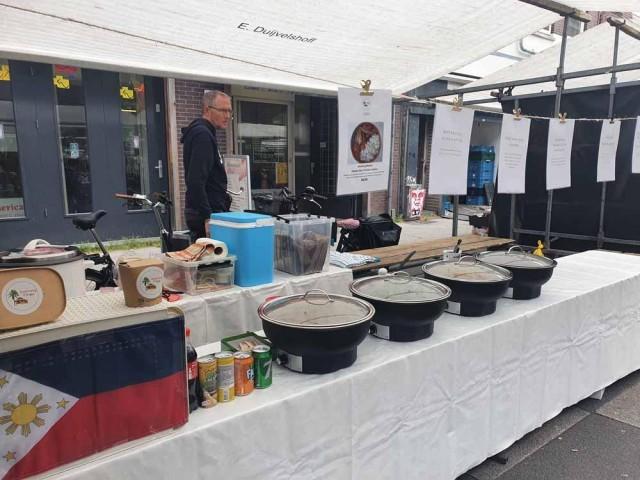
In 2020, Filipino food truck Luneta Ice Cream also won the Food Truck of the Year award for the Ice Cream category. De Nederlandse HORECA (Hotels, Restaurants and Café) Prijzen recognizes the best businesses in the Netherlands through public voting. Luneta Ice Cream is available in different flavors such as Ube, Pandan, Kapeng Barako, Mais, Mango and Macapuno.
— LA, GMA News





